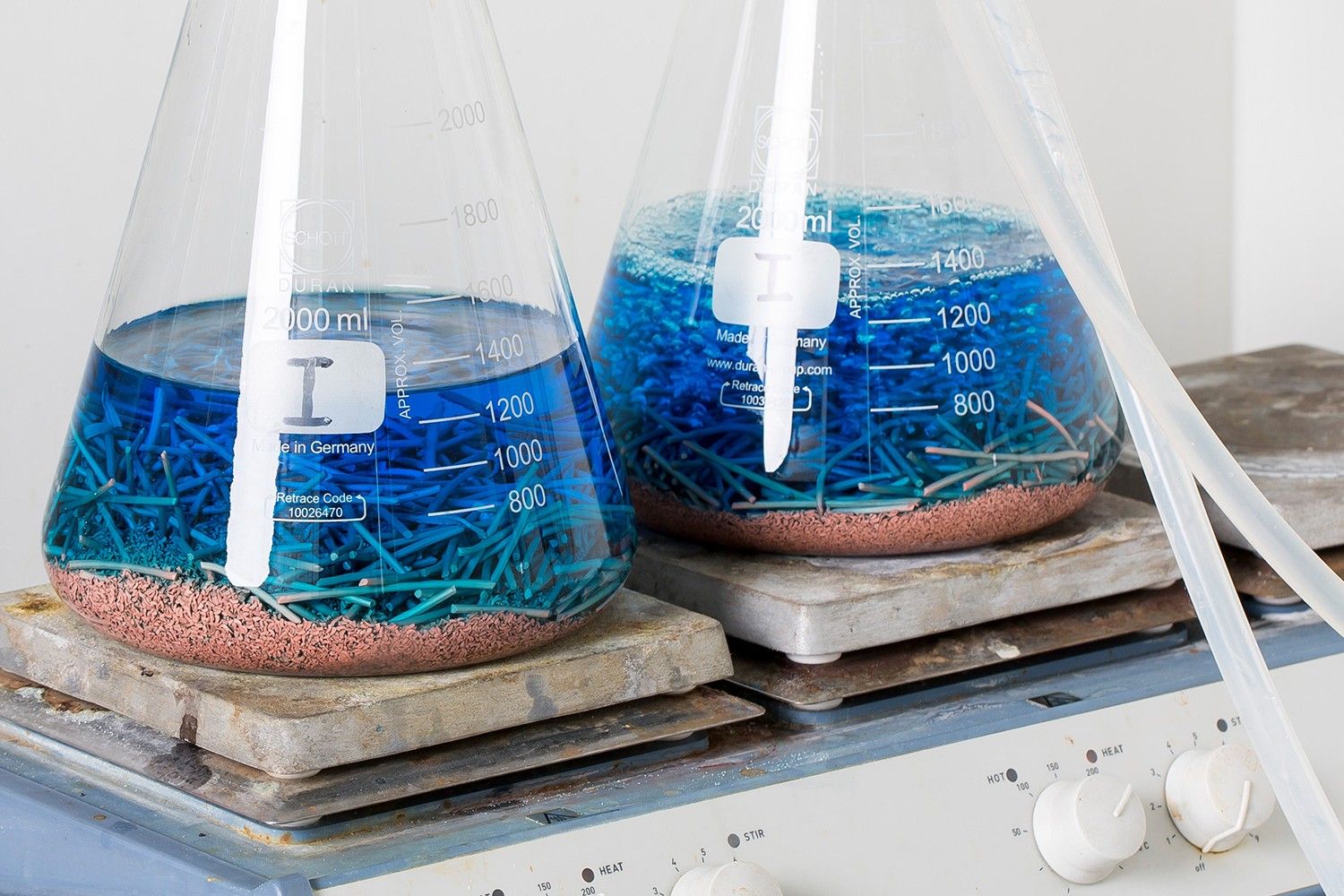
Corrosion testing is crucial for understanding how materials degrade over time. Why is corrosion testing important? It helps predict the lifespan of materials, ensuring safety and reliability in various industries like construction, automotive, and aerospace. Corrosion testing identifies potential weaknesses, allowing engineers to improve material formulations and coatings. This testing also aids in selecting the right materials for specific environments, reducing maintenance costs and preventing catastrophic failures. By simulating real-world conditions, corrosion testing provides valuable data that can save both time and money. In essence, corrosion testing is a vital step in material science, safeguarding infrastructure and enhancing product longevity.
What is Corrosion Testing?
Corrosion testing is essential for understanding how materials degrade over time. It helps industries ensure the longevity and safety of their products. Here are some fascinating facts about corrosion testing.
-
Corrosion testing evaluates how materials react to environmental conditions like humidity, temperature, and chemicals.
-
It helps predict the lifespan of materials used in construction, automotive, and aerospace industries.
-
Testing can identify the best protective coatings to prevent material degradation.
Types of Corrosion Testing
Different methods exist to test for corrosion, each serving a unique purpose. These methods help industries choose the best materials and protective measures.
-
Salt Spray Testing: This method simulates a corrosive environment using a salt fog to test the material's resistance.
-
Electrochemical Testing: Measures the electrical properties of materials to predict corrosion rates.
-
Immersion Testing: Involves submerging materials in a corrosive solution to observe their reaction.
Importance of Corrosion Testing
Understanding why corrosion testing is crucial can help appreciate its role in various industries. It ensures safety and reliability.
-
Prevents structural failures in bridges, buildings, and other infrastructures.
-
Helps in the development of corrosion-resistant materials.
-
Reduces maintenance costs by identifying potential issues early.
Industries Relying on Corrosion Testing
Many industries depend on corrosion testing to maintain the integrity of their products and structures.
-
Automotive Industry: Ensures the durability of car parts exposed to harsh conditions.
-
Aerospace Industry: Tests materials used in aircraft to ensure safety and longevity.
-
Marine Industry: Evaluates the resistance of ships and offshore structures to seawater.
Techniques in Corrosion Testing
Various techniques are employed to test for corrosion, each offering unique insights.
-
Weight Loss Method: Measures the loss of material weight over time to determine corrosion rate.
-
Visual Inspection: Simple yet effective, it involves examining materials for signs of corrosion.
-
Microscopy: Uses microscopes to study the microstructure of materials and detect early signs of corrosion.
Advancements in Corrosion Testing
Technological advancements have improved the accuracy and efficiency of corrosion testing.
-
Computer Simulations: Predict how materials will react to different environments without physical testing.
-
Non-Destructive Testing (NDT): Allows for the examination of materials without causing damage.
-
Real-Time Monitoring: Uses sensors to provide continuous data on material conditions.
Challenges in Corrosion Testing
Despite its importance, corrosion testing faces several challenges that need addressing.
-
Environmental Variability: Different environments can produce varying results, making standardization difficult.
-
Cost: High costs associated with advanced testing methods can be a barrier for some industries.
-
Time-Consuming: Some tests require long periods to produce accurate results.
Future of Corrosion Testing
The future of corrosion testing looks promising with ongoing research and technological advancements.
-
AI and Machine Learning: These technologies can predict corrosion patterns and improve testing accuracy.
-
Advanced Materials: Development of new materials with better corrosion resistance.
-
Sustainable Practices: Focus on eco-friendly testing methods and materials.
Real-World Applications of Corrosion Testing
Corrosion testing has practical applications that impact everyday life and industry standards.
-
Pipeline Safety: Ensures the integrity of pipelines transporting oil, gas, and water.
-
Medical Implants: Tests the durability of implants exposed to bodily fluids.
-
Electronics: Evaluates the corrosion resistance of electronic components.
Interesting Facts About Corrosion
Here are some intriguing tidbits about corrosion and its testing.
-
Corrosion costs the global economy over $2.5 trillion annually.
-
The Statue of Liberty underwent extensive corrosion testing and restoration to preserve its structure.
-
Ancient civilizations used natural corrosion inhibitors like olive oil to protect metal tools.
-
Corrosion testing can even be applied to artwork to ensure its preservation over time.
Corrosion Testing: Key Takeaways
Corrosion testing is crucial for ensuring the longevity and safety of materials. Understanding different types of corrosion, like galvanic and pitting, helps in selecting the right testing methods. Techniques such as salt spray tests, electrochemical methods, and immersion tests provide valuable insights into how materials will perform in real-world conditions. Regular testing can prevent costly failures and extend the lifespan of structures and components.
Industries like aerospace, automotive, and construction rely heavily on accurate corrosion testing. It’s not just about preventing rust; it’s about maintaining integrity and safety. Investing in proper testing methods saves money and ensures reliability.
By staying informed about the latest advancements in corrosion testing, you can make better decisions for material selection and maintenance. Knowledge in this field is a powerful tool for engineers, manufacturers, and anyone involved in material science.
Was this page helpful?
Our commitment to delivering trustworthy and engaging content is at the heart of what we do. Each fact on our site is contributed by real users like you, bringing a wealth of diverse insights and information. To ensure the highest standards of accuracy and reliability, our dedicated editors meticulously review each submission. This process guarantees that the facts we share are not only fascinating but also credible. Trust in our commitment to quality and authenticity as you explore and learn with us.
